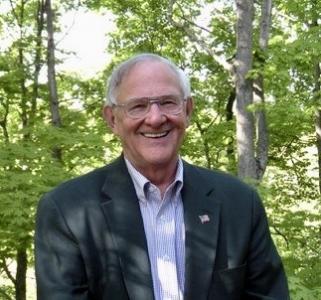William Stubblefield

NOAA Heritage Oral History Project
NOAA Heritage Oral History Project aims to document the history and legacy of NOAA through compelling interviews with its leaders. These firsthand accounts provide an invaluable resource that preserves NOAA's significant contributions to environmental research and management, fostering a deeper understanding of NOAA's vital role in shaping our understanding of the Earth's oceans and atmosphere.
Molly Graham
Rear Admiral William Stubblefield was born and raised in Medina, Tennessee. He attended Memphis State University and graduated in 1962 with a major in secondary education and a minor in chemistry. After graduation, Stubblefield was commissioned in the United States Navy and attended Naval Officer Candidate School in Rhode Island. He served on a minesweeper and ice breaker at sea, operating all over the globe. Following his time in the Navy, Stubblefield enrolled in a geology master’s program at the University of Iowa and graduated in 1971 when he started his career with the NOAA Commissioned Corps. His first sea assignments were onboard the NOAA Ships Pathfinder and Rainer. Stubblefield then served as Deputy Director of the Marine Geology and Geophysics Division at the Atlantic Oceanographic and Meteorological Laboratory in Miami. He was awarded the NOAA Corps Achievement medal for his work there. Stubblefield returned to sea duty aboard the NOAA Researcher and then returned to school, earning his PhD in geological oceanography from Texas A&M University. He then came back to AOML, where he served as co-scientist on a series of dives and made use of the Deep Diving Research Vessel Alvin. Then, Admiral Stubblefield served as Commanding Officer of the NOAA Ship Surveyor, where he traveled to the Antarctic peninsula and retraced Ernest Shackleton’s final expedition. Stubblefield returned to Washington, DC, and led NOAA’s Fleet Replacement and Modernization study before being selected as the Executive Director of the Office of Oceanic and Atmospheric Research. Later, he becAME director of the Office of NOAA Corps Operations, until he retired from NOAA in 1999. Since retiring from NOAA, Admiral Stubblefield and his wife Dr. Bonnie McGregor Stubblefield has moved to West Virginia, where he served on the Berkeley County Public Service Water District and then as the president of the Berkeley County Council. In 2019, the Stubblefields sponsored the Bonnie and Bill Stubblefield Institute for Civility in Political Communication at Shepherd University, and Bill serves on its board.
Please Note: The oral histories in this collection are protected by copyright and have been created for educational, research and personal use as described by the Fair Use Doctrine in the U.S. Copyright law. Please reach out Voices@noaa.gov to let us know how these interviews are being used in your research, project, exhibit, etc. The Voices staff can help provide other useful resources related to your inquiry.
The NOAA mission is to understand and predict changes in climate, weather, oceans, and coasts, to share that knowledge and information with others, and to conserve and manage coastal and marine ecosystems and resources. The Voices Oral History Archives offers public access to a wide range of accounts, including historical materials that are products of their particular times, and may contain offensive language or negative stereotypes.
Voices Oral History Archives does not verify the accuracy of materials submitted to us. The opinions expressed in the interviews are those of the interviewee only. The interviews here have been made available to the public only after the interviewer has confirmed that they have obtained consent.
